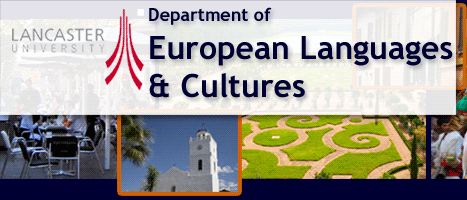
NEWS AND EVENTS ARCHIVE (2009-2014)
Archive
Genet's Aesthetics
Date: 27 February 2008 Time: 5.00 pm
DELC Research Seminar,
Carl Lavery (Theatre Studies, Lancaster University),
'Genet's Aesthetics',
Institute for Advanced Studies, Meeting Room 1.
All welcome.
This paper is based on a chapter I am writing for a book on Jean Genet's theatre called Spaces of Revolution. Unlike many recent theoretical readings which have tended to place his work within the paradigms of deconstruction and cultural studies, this book suggests that an alternative, decidedly more utopian notion of Genet's theatre emerges when it is placed within its proper historical context. By this, I mean the processes of decolonization and economic modernization that did so much to transform France economically, demographically and spatially in the 1950s and 1960s.
In this paper, I intend to explore Genet's post-1968 political commitment by focusing on his utopian and avant-gardiste view of revolution. While this is not intended, in any way, to denigrate or dismiss the invaluable work of critics who have highlighted Genet's interest in deconstructing essentialised and reactionary concepts of sexuality, gender and race, I nevertheless want to place the emphasis elsewhere. A key (methodological) focus of the paper is on Genet's own writings about politics, which, are often overlooked in the attempt to appropriate his work for a specific political agenda. The paper is divided into two sections. In the first, I provide a largely descriptive account of the causes to which Genet was committed from 1968 until his death in 1986; and in the second, I analyze the ways in which the aesthetic for Genet was a revolutionary device for resisting imperialism, neo-imperialism and the 'colonization of everyday life'.
Carl Lavery lectures in Theatre Studies at Lancaster University. He is co-editor of Jean Genet: Performance and Politics (2006), and co-author of Sacred Theatre (2007) and Performance, Walking and Autobiography (2008). He is currently struggling to finish Spaces of Revolution for Manchester University Press. He is interested in theatre and performance in France and the UK and collaborates with the Cresson group in Paris who are interested in architecture and sensory urbanism.
Contact:
Who can attend: Anyone
Further information
Associated staff:
Organising departments and research centres: European Languages and Cultures
Keyword: